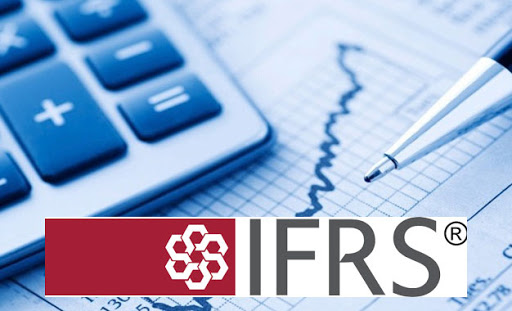What are IFRS?
International financial reporting standards (IFRS) are a number of standards that aim to standardize the presentation of the international exchange of accounting data.
The IFRS were edited by the International Accounting Standards Board, designated under its English initials IASB. Since 2005, these standards have replaced the International Accounting Standards (IAS).
However, there are still some standards labeled IAS (International Accounting standards). In the 2000s, certain financial scandals highlighted a lack of transparency regarding the information available to the private investor. The IASB was established in order to harmonize accounting reporting at the international level and enable investors to determine the financial position of a company.

Principles of International accounting standards
Accounting information must be “relevant, clear, reliable, and of relative importance”. IFRS set principles rather than rules, giving companies a wider scope of flexibility. Currently, the international accounting environment is characterized by four major trends:
- The application of the fair value model: The field of intervention in this method does not cease to overcome the further implications of normal international standards. The application of fair value is achieved by consolidating the dominance of market law over the international economy where prices and competition play the role of regulators that guide the choices of the economic actors.
- The predominance of the balance sheet approach: The declared trends of international standards give priority to the balance sheet in order to more closely track economic transactions. The accounting methods used do not allow achieving the same level of fair representation on the balance sheet and income statement. In fact, this second trend was a result of the first trend (fair value) that stimulates the balance sheet approach in dealing with financial reporting.
- Demonstrating performance rather than achieving results: The goal of a performance statement, which replaces results, is to measure performance as the discrepancy between two budgets. The new situation, which has not yet been precisely defined and which continues to generate controversy will briefly include the following elements:
- On the one hand, operational and financial results.
- On the other hand, in relation to assets measured at fair value, changes in the balance sheet value.
- Convergence between the International Accounting Standards Board (IASB) and the Financial Accounting Standards Board (FASB): A major project to bring international and American standards closer together to make accounting standards global. In view of the importance and dominance of the US economy on international transactions, the International Accounting Standards Board has installed itself a “subsidiary,” and it appears that the real international “legislator” now is the United Stat
CFR AUDIT’s role in supporting the implementation of IFRSs
Our approach to the IFRS adoption process as an accounting valuation framework involves the following steps:
- Delimitation of the prerequisites to the international standard.
- Creation of an ad hoc committee
- The end of the adoption process
- Diagnosis of deviations from the existing repository
- Adaptation of the organisational system
- Stop the conversion project
- Determination of the rules for taking into account and accounting
- Determination of the presentation rules
- Financial information of transition
The IASB offers an international accounting framework that is composed of IAS-IFRS, supplemented by interpretations (SIC-IFRIC) for the private sector, IFAC, through one of its entities: the International Public Sector Accounting Standards Board (IPSASB), has drawn up a framework on January 1, 2007 consisting of twenty-four accounting standards known as IPSAS (International Public Sector Accounting Standards). Twenty-one of these standards are largely based on IAS-IFRS. As for standards 22, 23 and 24, they are intended for the public sector, and have been developed without reference to IAS.

IPSAS, which were established by the IPSASB in 1996, are now applied by international organizations such as the European Union Commission , the OECD, IFAC, and NATO. A high-level UN committee has recommended that they should be adopted by UN agencies. The World Bank and the IMF encouraged the countries in which they operated to develop the use of IPSAS. In many countries, states have chosen to openly draw on IPSAS to elaborate national accounting standards for the public sector. For example, thirteen accounting standards were developed in France within the framework of the Organic Law of 1 August 2001 regarding the institutional law on financial legislation. This process was carried out in the context of transparency, which led to the authentication of the state accounts by the Court of Auditors.
International accounting standards tend to develop in both the private and public sectors. Why does the latter need to have a set of accounting standards drawn up by a suitable transposition of IAS-IFRS? In other words, what are the contributions of international accounting standards to the public sector? What are the limits of these accounting standards for the public sector? The main working assumption that feeds our problem is to say that, despite the specificities of the public sector, it obeys modern and effective management requirements as well as accountability like the private sector.
Goals of International Public Sector Accounting Standards
The purpose of IPSAS is to improve the quality of financial information for public-sector entities in order to enable resource allocation decisions based on more reliable information, thereby improving financial transparency and accountability in this field.
Applicability
The IPSAS are standards intended to be used by national public, regional (i.e. local authorities…), local institutions (municipalities, urban communities), and any public entity (agency, authority, commission…). IPSAS are widely used by intergovernmental and international organizations. IPSAS do not apply to public corporations with a commercial status (limited company, Limited liability company, etc.) or operating in a competitive and regulated context.
What are the differences between IPSAS & IFRS ?
IPSAS are established on the IFRS (the International Financial Reporting Standards) that are previously known as International Accounting Standards (IAS). IFRS are written by the International Accounting Standards Board (IASB). IPSASB adapts IFRS for the public sector when it is necessary. In this process, IPSASB tries as much as possible to maintain the accounting principle and the original text of IFRS, unless a significant public sector reason makes differentiations necessary.

